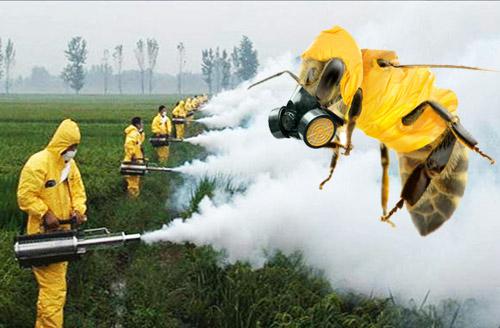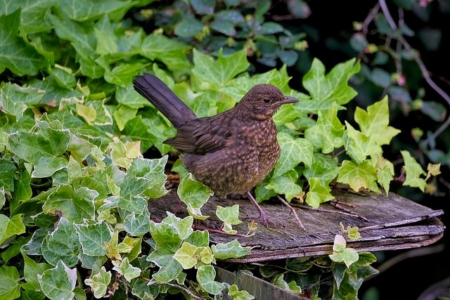France has officially reinforced its commitment to environmental protection by adopting a new law that upholds the nationwide ban on pesticides harmful to bees. The legislation, confirmed by French authorities this week, aims to curb the use of chemicals linked to declining bee populations, reinforcing the country’s role as a leader in biodiversity preservation. This move comes amid growing global concern over the impact of pesticides on pollinators, essential for agriculture and ecosystems.
France Enforces New Legislation Banning Harmful Bee Pesticides
In a decisive move to protect vital pollinators, French lawmakers have passed legislation reinforcing the nationwide ban on neonicotinoids, a class of pesticides linked to the drastic decline of bee populations. The law not only prohibits the use and sale of these chemicals but also introduces stricter penalties for violations, signaling France’s commitment to sustainable agriculture and biodiversity preservation. This move aligns with growing global efforts to mitigate the environmental impact of chemical pesticides and safeguard essential ecosystems.
The new regulations include:
- Expanded pesticide-free zones: Areas around beekeeping sites will be designated as protected, limiting pesticide application nearby.
- Enhanced monitoring protocols: Authorities will increase inspections on farms and pesticide distributors to ensure compliance.
- Support for alternative farming: Subsidies and technical assistance aim to encourage farmers to adopt pollinator-friendly practices.
| Impact Area | Expected Outcome |
|---|---|
| Bee Population Recovery | +30% in 5 years |
| Crop Pollination Efficiency | Improved by 18% |
| Reduction in Pesticide Violations | -50% within 2 years |
Environmental Impact and Agricultural Challenges of the Pesticide Ban
France’s decisive move to maintain the ban on neonicotinoid pesticides, widely implicated in the decline of bee populations, marks a significant step toward protecting biodiversity. However, this environmental victory also brings a set of complex challenges for the agricultural sector. Farmers are now seeking alternative pest control methods that are both effective and sustainable, with an emphasis on integrated pest management (IPM) techniques such as crop rotation, biological pest control, and the use of natural predators. The transition demands substantial investment in research and training to ensure crop yields and food security are not compromised.
Among the critical difficulties posed by the ban, farmers report increased vulnerability to pest outbreaks, potentially leading to higher production costs and reliance on other chemical treatments that may not be as environmentally friendly. The table below summarizes some of the main agricultural challenges alongside emerging solutions gaining traction in France:
| Challenge | Impact | Alternative Solution |
|---|---|---|
| Increased pest susceptibility | Reduced crop yields | Biological controls (e.g., parasitoids, predators) |
| Rising production costs | Financial strain on small farmers | Government subsidies and training programs |
| Limited effective pesticides | Potential pest resistance | Integrated pest management (IPM) strategies |
Experts Advise Sustainable Alternatives to Protect Pollinators and Crop Yields
Leading entomologists and agricultural experts have emphasized the critical need for implementing sustainable practices that safeguard pollinator populations without compromising crop productivity. Among the recommended strategies are the adoption of integrated pest management (IPM) approaches, enhancing habitat diversity, and promoting organic farming methods. These practices not only reduce dependence on harmful chemicals but also foster resilient ecosystems where natural predators and pollinators thrive. Key sustainable alternatives include:
- Use of biopesticides derived from natural materials
- Planting pollinator-friendly cover crops and flower strips
- Implementing crop rotation to reduce pest pressure
- Encouraging on-farm biodiversity to support beneficial insects
Research indicates that integrating these methods can maintain or even improve crop yields. A comparative overview of pesticide types and their impact on pollinators presents a compelling case for reforming current agricultural chemical use:
| Pesticide Type | Pollinator Toxicity | Crop Yield Impact |
|---|---|---|
| Neonicotinoids | High | Moderate Short-Term |
| Biopesticides | Low | Consistent |
| Organic Fungicides | Very Low | Variable |
| Conventional Pyrethroids | Moderate | High Short-Term |
In Conclusion
As France moves forward with the adoption of this law reaffirming the ban on bee-killing pesticides, it positions itself at the forefront of environmental protection and biodiversity conservation. Advocates hail the measure as a critical step toward safeguarding pollinators essential to global food security. However, the ruling also sets the stage for ongoing debates between environmental priorities and agricultural interests, underscoring the complex challenges nations face in balancing economic and ecological demands.




